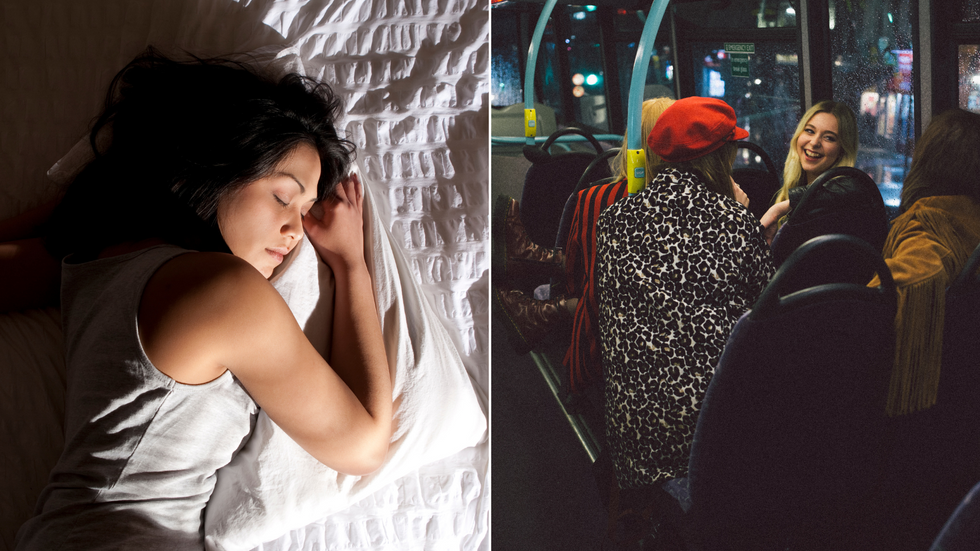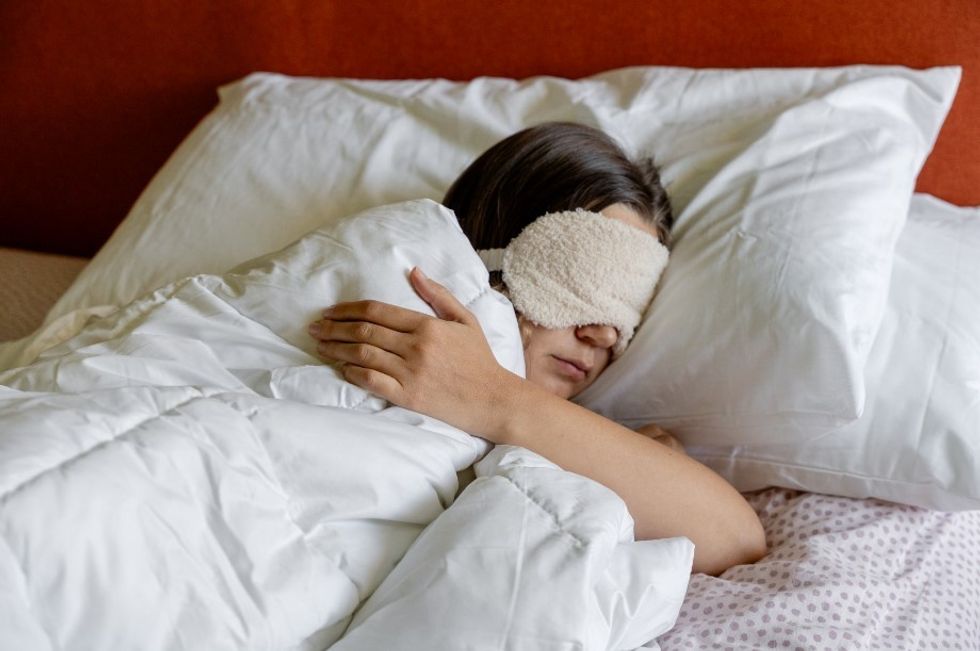The average Briton is heading to bed earlier than they did three years ago, ditching late nights in favour of a good night’s sleep, according to new data.
The network provider’s traffic analysis shows people are switching off their devices 20 minutes earlier compared to 2020, analysis from Virgin Media O2 shows.
The evening digital wind-down now begins at 9.20pm, marking a significant shift in the nation’s bedtime habits.
It suggests a growing awareness of sleep’s importance, with data indicating that UK residents are not just sleeping earlier, but also rising earlier than before.

The average Briton is heading to bed earlier than they did three years ago
Getty
Network data shows people are now starting their online activities at 6.20am, which is 15 minutes earlier than in 2020.
This marks a significant change from the peak of the pandemic in 2021 when Britons recorded their latest wake-up time of 6.50am.
During that period, the Office of National Statistics found people were spending an average of 18 minutes extra sleeping or resting.
Professor Russell Foster, a leading expert on sleep at Oxford University, welcomes this shift in behaviour.
MORE LIKE THIS:

UK residents are not just sleeping earlier, but also rising earlier than before
GETTY
“I think the data indicates that many people, and particularly Generation Z, are taking their sleep more seriously,” he says.
He notes this aligns with broader health-conscious trends among younger people, including better diet and reduced alcohol consumption.
Foster added: “I am delighted that the message we, and others, have been promoting regarding the connection between good sleep and overall health seems to be having an impact.”
Better sleep has been linked to numerous health benefits, including improved heart health, stronger memory, enhanced immune system, and balanced weight.
The earlier bedtimes could also be linked to changing work patterns, as more Britons return to office-based routines.
Data shows that 48 per cent of workers are now heading to the office five days a week.
More than a third (36 per cent) of office workers are required to be at their desks every day.
Wednesday has emerged as the most popular commuting day, according to O2’s mobile data.

The earlier bedtimes could also be linked to changing work patterns, as more Britons return to office-based routines
Getty
Companies are encouraging office attendance through various incentives, including free drinks, regular social events and pizza.
Many employees report finding the office environment more productive, better for colleague connections and beneficial for physical well-being.
The trend towards earlier bedtimes echoes an age-old wisdom about sleep patterns.
The famous saying “early to bed, early to rise, makes a man healthy, wealthy, and wise” has ancient origins. While Greek and Roman philosophers first explored this concept, it was Benjamin Franklin who popularised the phrase.
Last week, it was revealed that Civil Service attendance has fallen since Labour won power, with 13 different Government departments recording a drop in employees stationed at their desks.
Official figures show a decline in office attendance from the levels recorded immediately after Sir Keir Starmer’s election victory.
Key departments including the Treasury, Housing and Justice are seeing less staff at their desks after just three months of Labour Government.